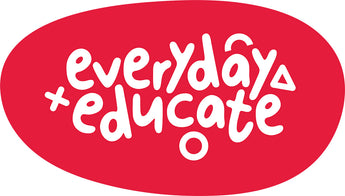As parents, we all want our children to succeed in life, and one of the most important skills for success is critical thinking. Critical thinking skills help children analyze information, solve problems, and make informed decisions. In this article, we will explore what critical thinking skills are, why they are important, and how parents can help their children develop these skills.
Table of Contents
- What are Critical Thinking Skills?
- Why are Critical Thinking Skills Important?
- How to Develop Critical Thinking Skills in Your Child
- Encourage Questions and Curiosity
- Teach Your Child to Identify Bias and Assumptions
- Promote Open-Mindedness
- Encourage Your Child to Seek Out Different Perspectives
- Teach Your Child to Evaluate Information and Evidence
- Practice Problem-Solving Skills
- Strategies for Incorporating Critical Thinking Skills into Daily Life
- Engage in Creative Problem-Solving Activities
- Play Games that Encourage Critical Thinking
- Promote a Growth Mindset
- Model Critical Thinking Skills
- Conclusion
- FAQs
1. What are Critical Thinking Skills?
Critical thinking is the ability to analyze information, evaluate evidence, identify assumptions, and solve problems in a logical and systematic way. Critical thinking skills include the ability to:
- Ask questions
- Evaluate information and evidence
- Identify biases and assumptions
- Analyze arguments and draw conclusions
- Solve problems systematically
2. Why are Critical Thinking Skills Important?
Critical thinking skills are important for success in all aspects of life, from academics to personal relationships and career success. Children who develop strong critical thinking skills are better equipped to:
- Understand complex information
- Solve problems creatively
- Make informed decisions
- Communicate effectively
- Think independently
3. How to Develop Critical Thinking Skills in Your Child
As parents, we can help our children develop critical thinking skills by encouraging them to ask questions, identify biases and assumptions, and evaluate information and evidence. Here are some strategies that can help:
- Encourage Questions and Curiosity
Encourage your child to ask questions and be curious about the world around them. This will help them develop a habit of thinking critically and seeking out information.
- Teach Your Child to Identify Bias and Assumptions
Help your child understand that everyone has biases and assumptions that can affect how they interpret information. Teach them to recognize and evaluate these biases and assumptions to make informed decisions.
- Promote Open-Mindedness
Encourage your child to keep an open mind and consider different perspectives. This will help them develop empathy and understanding, as well as the ability to think critically about different ideas and viewpoints.
- Encourage Your Child to Seek Out Different Perspectives
Encourage your child to seek out different perspectives and consider different viewpoints. This will help them develop a more well-rounded understanding of the world and be better equipped to evaluate information and evidence.
- Teach Your Child to Evaluate Information and Evidence
Teach your child how to evaluate information and evidence critically. Help them understand how to identify reliable sources of information and evaluate the quality of evidence to make informed decisions.
- Practice Problem-Solving Skills
Encourage your child to practice problem-solving skills by solving puzzles, playing strategy games, and engaging in other activities that require critical thinking and problem-solving skills.
4. Strategies for Incorporating Critical Thinking Skills into Daily Life
In addition to specific strategies for developing critical thinking skills, there are also many ways to incorporate these skills into daily life. Here are some strategies that can help:
- Engage in Creative Problem-Solving Activities
Encourage your child to engage in activities that require creative problem-solving skills. This can include things like building structures with blocks, creating art projects, or designing and building simple machines.
- Play Games that Encourage Critical Thinking
There are many games that can help develop critical thinking skills, such as puzzles, strategy games, and brain teasers. Playing these games with your child can be a fun way to develop their critical thinking skills.
- Promote a Growth Mindset
Encourage your child to have a growth mindset, which means embracing challenges and understanding that failure is a natural part of the learning process. This can help your child develop resilience and the ability to persevere in the face of obstacles.
- Model Critical Thinking Skills
Finally, as parents, we can model critical thinking skills for our children. This means demonstrating how to ask questions, evaluate evidence, and solve problems in a logical and systematic way. When our children see us using these skills, they are more likely to develop them themselves.
5. Conclusion
Critical thinking skills are essential for success in all areas of life. As parents, we can help our children develop these skills by encouraging questions and curiosity, teaching them to identify bias and assumptions, promoting open-mindedness, encouraging them to seek out different perspectives, teaching them to evaluate information and evidence, and practicing problem-solving skills. By incorporating these strategies into daily life and modeling critical thinking skills, we can help our children develop the skills they need to succeed.
6. FAQs
- How can I encourage my child to ask questions?
- Encourage curiosity by asking open-ended questions and exploring the world together.
- What are some creative problem-solving activities for kids?
- Building with blocks, creating art projects, and designing simple machines are all great activities for developing creative problem-solving skills.
- What are some good strategy games for kids?
- Chess, checkers, and Scrabble are all great strategy games for kids.
- How can I help my child develop a growth mindset?
- Encourage your child to embrace challenges and understand that failure is a natural part of the learning process.
- How can I model critical thinking skills for my child?
- Demonstrate how to ask questions, evaluate evidence, and solve problems in a logical and systematic way.



 Chat with Us
Chat with Us